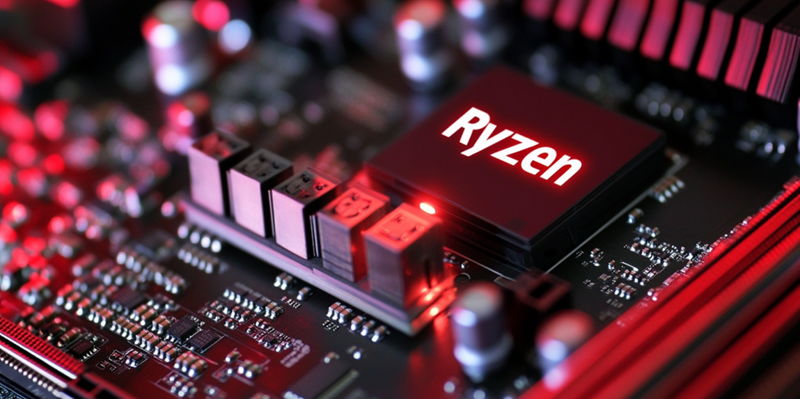AMD’s innovative design changes in its upcoming Ryzen 7 9800X3D CPU, scheduled for launch on November 7, have sparked significant interest in the tech community. The most notable modification includes relocating the additional L3 V-Cache from the top of the core complex die (CCD) to underneath it, which was confirmed by a delidded image of the CPU obtained by Wccftech. This strategic move is expected to significantly enhance thermal performance by allowing direct contact between the CPU and the integrated heat spreader (IHS), potentially enabling much better heat dissipation. Such a configuration could address one of the critical challenges in modern CPU design—effective thermal management—which is essential for maintaining high-performance levels over extended periods.
Potential Performance Enhancements
In addition to improving thermal performance, relocating the V-Cache might bring other exciting benefits. One such potential advantage is the possibility of AMD introducing an unlocked multiplier for overclocking. This feature has not previously been available in V-Cache CPUs, but Videocardz suggests that it is likely to be included in the Ryzen 7 9800X3D. Overclocking enthusiasts have long awaited this feature, and its introduction would open up new avenues for performance optimization. Moreover, this relocation paves the way for future CPU designs to feature multiple V-Cache stacks. For instance, 16-core processors could potentially hold four stacks per die, although this would present considerable thermal management challenges.
The buzz surrounding this novel configuration is palpable. The tech community is eager to see how these enhancements will translate into real-world performance. Many are optimistic that this architectural innovation will lead to significant gains, not just in benchmark scores, but in practical applications like gaming and professional workloads.
Market Impact and Consumer Expectations
AMD’s upcoming Ryzen 7 9800X3D CPU, set to launch on November 7, has generated considerable excitement within the tech community. The most noteworthy adjustment in this processor is the relocation of the extra L3 V-Cache from atop the core complex die (CCD) to underneath it. This change was verified by a delidded image of the CPU revealed by Wccftech. By repositioning the L3 V-Cache, AMD intends to significantly improve thermal performance, as this setup permits direct contact between the CPU and the integrated heat spreader (IHS). This direct contact is anticipated to boost heat dissipation effectively, addressing a critical challenge in contemporary CPU design: efficient thermal management. Effective thermal management is vital for maintaining high-performance levels during prolonged usage periods, and this innovative design could offer a substantial advantage. The strategic shift exemplifies AMD’s commitment to pushing the boundaries of CPU technology, focusing on improving both performance and durability under intense operational conditions.

